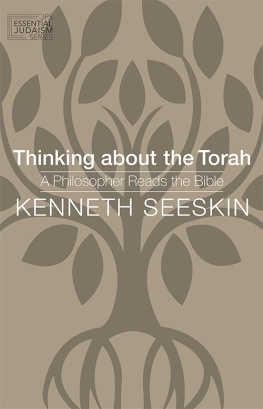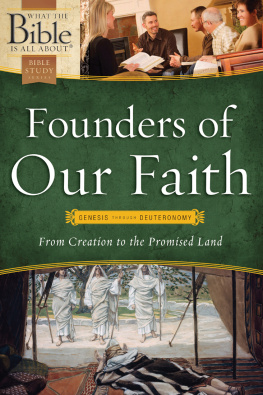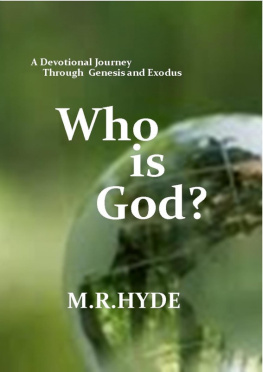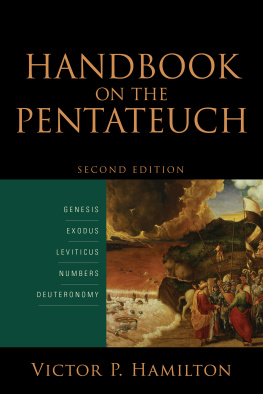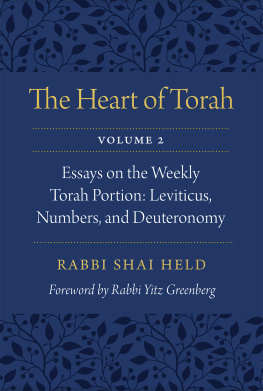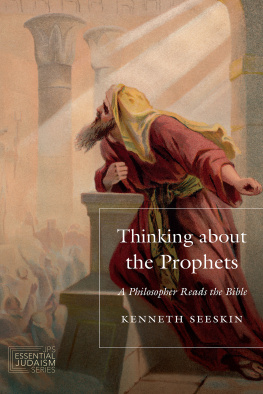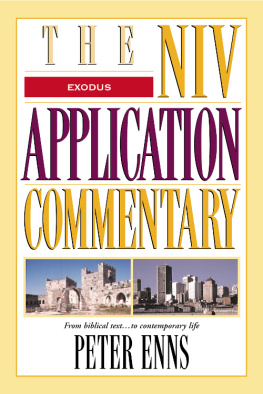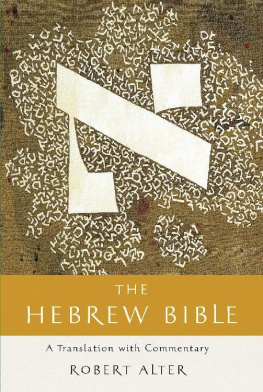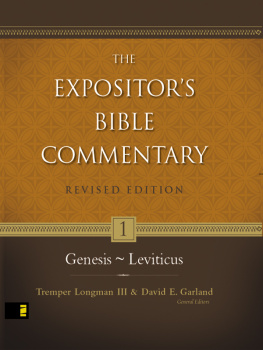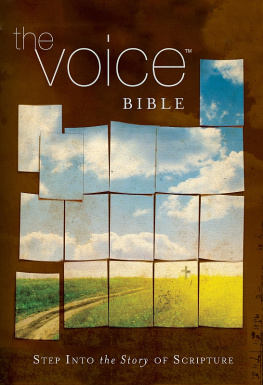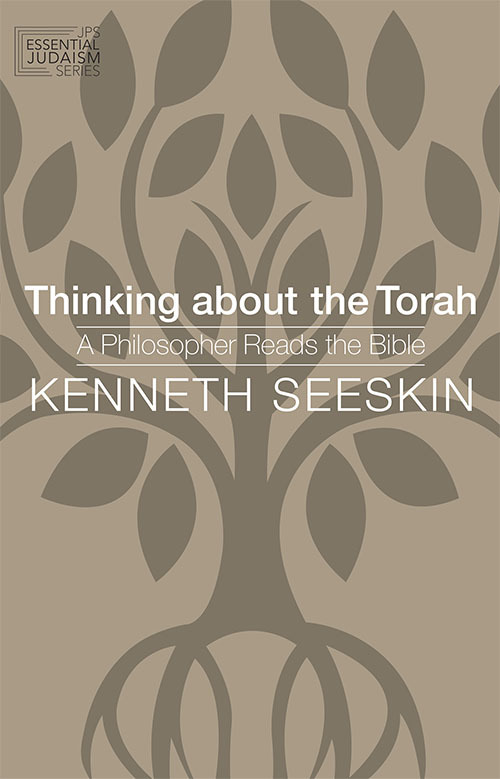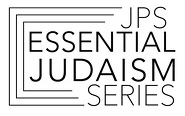Seeskin writes beautifully. He is a master teacher, and hence his book has a directness and simplicity about it that is captivating, and even stunning at times.
Michael L. Morgan, coeditor of The Cambridge Companion to Modern Jewish Philosophy
Not only will readers come away with enhanced understanding of and appreciation for key passages in the Torah but along the way they will be introduced to Plato, Aristotle, Maimonides, Spinoza, Kant, Kierkegaard, Cohen, Rosenzweig, Buber, and Levinas... [whose words are] made accessible and important for our contemporary understanding of the Torah.
Menachem Kellner, chair of the Department of Philosophy and Jewish Thought at Shalem College in Jerusalem and author of Must a Jew Believe Anything?
Thinking about the Torah
A Philosopher Reads the Bible
Kenneth Seeskin

The Jewish Publication Society | Philadelphia
University of Nebraska Press | Lincoln
2016 by Kenneth Seeskin
Cover designed by University of Nebraska Press.
Acknowledgments for the use of copyrighted material appear in , which constitutes an extension of the copyright page.
All rights reserved. Published by the University of Nebraska Press as a Jewish Publication Society book.
Library of Congress Cataloging-in-Publication Data
Names: Seeskin, Kenneth, 1947 author.
Title: Thinking about the Torah: a philosopher reads the Bible / Kenneth Seeskin.
Description: Philadelphia: Jewish Publication Society; Lincoln: University of Nebraska Press, [2016] | Series: JPS essential Judaism series | Includes bibliographical references.
Identifiers: LCCN 2016003753
ISBN 9780827612624 (pbk.: alk. paper)
ISBN 9780827612983 (epub)
ISBN 9780827612990 (mobi)
ISBN 9780827613256 (pdf)
Subjects: LCSH : Bible. PentateuchCriticism, interpretation, etc. | Jewish philosophy.
Classification: LCC BS 1225.52 . S 425 2016 | DDC 222/.106dc23 LC record available at http://lccn.loc.gov/2016003753
The publisher does not have any control over and does not assume any responsibility for author or third-party websites or their content.
To my children and grandchildren
My cup is overflowing.
Contents
A Philosophers Plea
Let me begin with a personal admission. At the age of sixty-nine, when most people adopt an easygoing way of life, I have a chip on my shoulder. It is not that I myself have been cheated out of something but that I cannot help but think that the religion I have practiced all my life has been misunderstoodnot just by those outside it but by those inside it as well.
The basis of the misunderstanding is that Judaism is more concerned with what a person does (what foods she eats, what clothes she wears, and what holidays she celebrates) than with what she thinks. No one but a fool would deny that Judaism is concerned with what a person does. But this does not mean that what a person thinks should be brushed aside like so many crumbs from the table.
The standard Christian criticism of Judaism is that it is a primitive religion that lacks a reflective component. Christianity, it is said, superseded Judaism because it saw that faith in God is more important than obedience to a list of dos and donts. It is this line of thought that still encourages people to refer to the Hebrew Bible as the Old Testament, suggesting that it is only the first half of an extended work that culminates in the death and resurrection of Jesus. In the eighteenth century, as enlightened a figure as Immanuel Kant maintained that Judaism is not a religion at all but a set of tribal practices.
In the 1960s, when I went to college, courses in religious ethics were really courses in Christian ethics, while courses in the philosophy of religion were essentially courses on the nature of Christian faith. After I became a professor and started teaching philosophy of religion, a publisher who asked me to review a textbook was put off when I remarked that not one Jewish thinker was mentioned in a four-hundred-page volume. Although the situation is better today, it still leaves much to be desired. For many Christians, Judaisms contribution to the philosophy of religion begins and ends with the story of Abraham and Isaac.
Unfortunately, Christians are not the only ones who see Judaism this way. Walk into any decently stocked bookstore, and you are likely to find an ample selection of titles dealing with Christian theology or Christian accounts of Old Testament theology. But walk into a store specializing in books of Jewish interest, and the selection of books on philosophy or theology is likely to be much smaller, if there is any selection at all.
I remember an editor at a university press who once warned me never to put the word philosophy in a book intended for a Jewish audience, because if I did, no one would buy it. Jews, it seems, are willing to learn about their history, literature, or sociology, but if you ask them to examine the worldview that underlies their religion, you are asking for trouble. Carlos Fraenkel relates that some hasidic Jews still regard studying philosophy as much worse than having an extramarital affair or seeing a prostitute.
It is this attitude that I want to combatnot only because I believe that Judaism does present a worldview but also because I believe that its worldview is worth taking seriously. It is impossible for a book that talks about God, puts forth standards of right and wrong behavior, and holds out the promise of redemption not to raise philosophic questions. If so, then it is also impossible to appreciate the full significance of that book without taking up those questions in some detail. Paul Tillich, a Christian theologian influenced by the Jewish theologian Martin
My claim is not that people should dispense with dietary laws or festival observance and focus exclusively on philosophy but that once in a while they should stand back from what they are doing and ask Tillichs question. If they do, it will not be long before they also ask what all these practices mean and why it is important that we continue to do them.
Faced with these questions, Maimonides answered that every practice mandated by the Torah is a means to a specific end: observance of the first two commandments, which he understood to mean the acceptance of monotheism and the rejection of idolatry. Because monotheism and idolatry are controversial terms, let us see if we can get to the gist of what he is saying.
Almost every culture we know of has introduced a form of religion and identified objects of worship. There were twelve gods and goddesses in Homers pantheon. In the Middle East there were Asherah, Baal, Inanna, Marduk, and Moloch, just to name a few. What made ancient Israel unique is not that it had its own God but that over time it made a special claim about that God. Unlike warrior gods, nature gods, or fertility gods, this God was supposed to be unique. In the words of the Prophet Isaiah (40:18), he is comparable to nothing else.
How can something be comparable to nothing else? Consider an example. A freight train wields more power than an automobile, the rotation of the earth more power than a freight train, the rotation of Jupiter more power than the rotation of the earth. Note, however, that whenever we have a sliding scale of this kind, there is a common measure by which we can compare the various things on it. To say that God is incomparable to anything else implies that no amount of power we can measure compares with the ability to create the entire universe from scratch.

